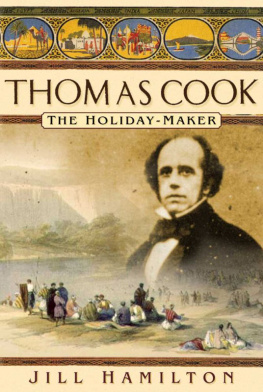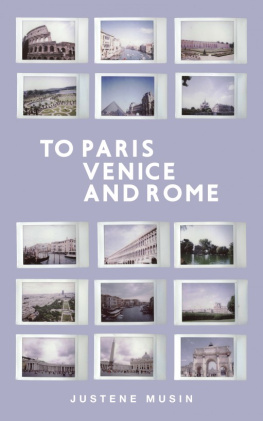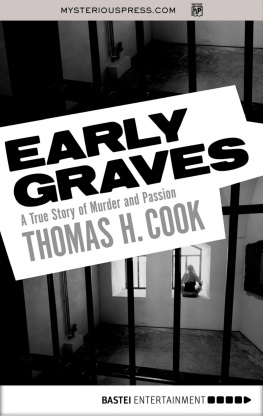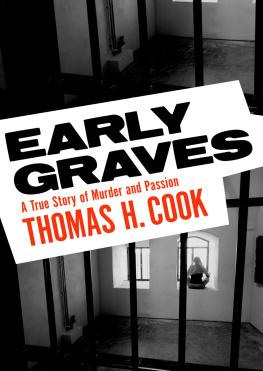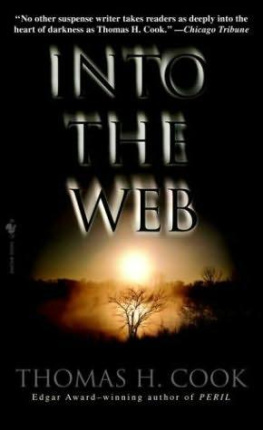To Penny Hart, who has helped me so
much over the years.
First published in 2005 by Sutton Publishing
The History Press
The Mill, Brimscombe Port
Stroud, Gloucestershire, GL5 2QG
www.thehistorypress.co.uk
This ebook edition first published in 2013
All rights reserved
Jill Hamilton, 2005, 2013
The right of Jill Hamilton to be identified as the Author of this work has been asserted in accordance with the Copyrights, Designs and Patents Act 1988.
This ebook is copyright material and must not be copied, reproduced, transferred, distributed, leased, licensed or publicly performed or used in any way except as specifically permitted in writing by the publishers, as allowed under the terms and conditions under which it was purchased or as strictly permitted by applicable copyright law. Any unauthorised distribution or use of this text may be a direct infringement of the authors and publishers rights, and those responsible may be liable in law accordingly.
EPUB ISBN 978 0 7524 9508 8
Original typesetting by The History Press
Contents
Chronology
1808 | Thomas Cook born in Melbourne, Derbyshire. |
1834 | John Mason Cook born on 13 January. |
1841 | Organises his first excursion by rail from Leicester to a Temperance meeting in Loughborough. |
1845 | Conducts his first trip for profit by railway to Liverpool from Leicester, Nottingham and Derby. |
1846 | Escorts a tour to Scotland. |
1851 | Promotes trips to the Great Exhibition in Hyde Park.
The Excursionist published for the first time as Cooks Exhibition Herald and Excursion Advertiser. |
1855 | Inaugurates continental tour. |
1863 | Conducts his first party to Switzerland via Paris. |
1864 | John Mason Cook, aged 30, joins his father in business. |
1865 | Office opened in Fleet Street, London. |
1866 | John Mason escorts the first American tour. |
1868 | A system of hotel coupons introduced. |
1869 | Escorts his first party to Egypt and Palestine. |
1871 | Thomas Cook & Son becomes the official name of the firm. |
1872/3 | Organises and leads the first round-the-world tour 222 days and 25,000 miles. |
1873 | New offices open at Ludgate Circus, London.
The first edition of Cooks Continental Time Tables and Tourists Handbook is published. |
1874 | Cooks Circular Note, an early form of the travellers cheque, is launched in New York. |
1878 | A Foreign Banking and Money Exchange Department is established. |
1879 | 1 January. John Mason becomes sole managing partner. |
1884 | Thos. Cook & Son conveys a relief force sent to rescue General Gordon from Khartoum up the Nile as far as Wadi Halfa. |
1892 | Thomas Cook dies in Leicester aged 83. |
Preface
Cook is a forgotten hero of his age. This book commemorates the 150th anniversary of his first overseas conducted tour in 1855. Driven by his religious faith, Cook founded a major industry, one that is now one of the worlds biggest sectors. In the UK alone, it is the third largest industry, worth over 75 billion a year.
When Cook was born in 1808, the term tourism had not been invented. Leisure in distant places was mostly an unknown experience as was staying in hotels or eating in restaurants. Poor men made journeys only when necessary; poor women usually stayed at home. Yet, by the time Cook died in 1892, travelling abroad had become part of modern life. The number of travellers from England who steamed across the Channel to the continent via ports with railway connections grew from 165,000 in 1850 to 951,000 by 1899.
It was not until Cook started his cheap overseas tours in 1855 that workers, let alone women, had the opportunity to go abroad easily. His group packages gave them an umbrella under which it was safer to explore foreign places. Just how revolutionary this was can be seen by looking at the small numbers of women who had braved sailing boats in the previous four centuries.
Cooks career in travel began with the burgeoning of rail and steam transport in 1841; he died just as the combustion-engine era was about to take off. Since Cooks death in 1892 modes of travel have changed enormously, but not the basic methods, organisation and marketing that he championed. A printer by trade, he knew the potential of advertising, promotions and travel writing even starting the first regular monthly travel newspaper in 1851. Nearly every trip was promoted in advance with posters and leaflets, and each tourist was given historical and practical information to animate places en route and destinations. The one thing, though, that would startle this man who left school at ten years old would be the university degrees in tourism and the many Professors of Tourism and Leisure Management. As degrees in different aspects of the travel industry have expanded, the Thomas Cook Archives in Peterborough have been mined by research students. Like them, I have relied heavily on this invaluable resource. This book, though, was neither commissioned nor subsidised by the famous travel agency that Cook started. It springs entirely from my interest in how he opened up the Middle East, especially the Holy Land and Egypt, to tourism.
Three times a week, when walking to the School of Oriental and African Studies in London, I walk past the site of Cooks former house in Great Russell Street, opposite the British Museum, and I never fail to recall Cooks tenacity and ability to keep going despite terrible reverses. The man who boasted that he had escorted over a million tourists without mishap witnessed the death of his only daughter at home because he personally misjudged the safety of a gas boiler. That was on top of having become estranged from his only son but if he had lived longer he would have had the satisfaction of seeing that his name continued as a household word, synonymous with popular tourism; and that the Baptist chapel that he worked so hard to open in Rome in the 1870s is still well attended.
Jill Hamilton
Chelsea, November 2004
To travel is to feed the mind, humanize the soul, and rub off the rust of circumstance to travel is to read the last new book, enjoy to its full the blessings of invention to travel is to have Natures plan and her high works simplified, and her broad features of hill and dale, mountain and flood, spread like a map at ones feet to travel is to dispel the mists of fable and clear the mind of prejudice taught from babyhood, and facilitate perfectness of seeing eye to eye. Who would not travel at a penny per mile?
Thomas Cook, Excursionist, July 1854
ONE
Religion, Railways and Respectability
The prejudices which ignorance has engendered are broken by the roar of a train and the whistle of the engine awakens thousands from the slumber of ages...
Thomas Cook, Handbook to Scotland, 1846
T ourism is now among the worlds largest industries, but little is known about its greatest pioneer, Thomas Cook, the father of tourism. He revolutionised travel, invented package holidays and brought mobility to the masses. The sex, alcohol, overspending, indolent leisure and extravagance that are now associated with much of the holiday industry would horrify him. Few know of his preoccupation with God, Rome and the Holy Land, or of his determination to improve the lot of the working classes, let alone his abhorrence of beer houses, pubs and gin palaces. In the nineteenth century no priest, or minister, did more than this diminutive former preacher to shape Protestant attitudes to Palestine. By opening up Palestine to tourism, Cook deliberately offered the British people a way to reconnect with their religious roots. From 1869 onwards he brought the largest number of British to the Holy Land since the Crusader armies and private parties of pilgrims in the Middle Ages.

